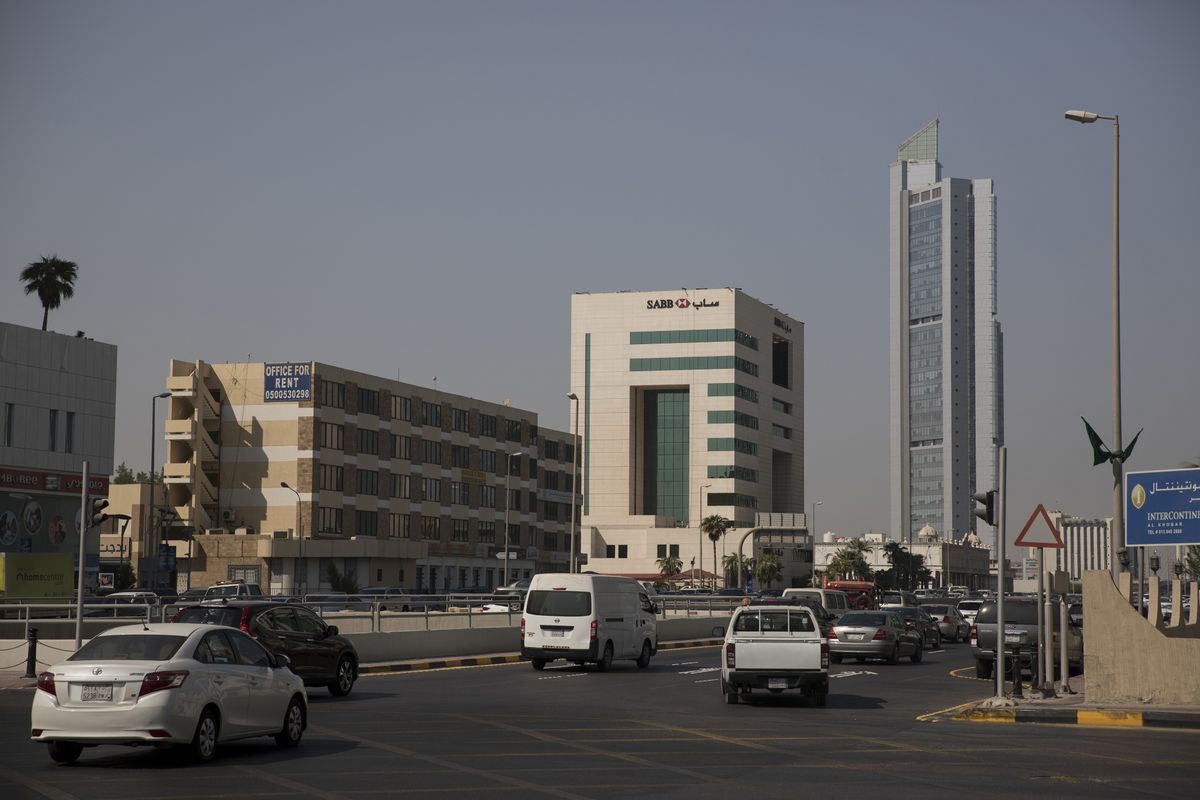Banking & Finance
Saudi Said to Weigh More Bank Mergers as NCB Announces Talks

Saudi Arabia is exploring potential mergers to boost its financial services industry after the combination of Saudi British Bank and Alawwal Bank, according to people with knowledge of the matter.
The kingdom’s main sovereign wealth fund, which owns stakes in some of the biggest lenders, is weighing which banks could be merged to increase scale and competition, the people said, asking not to be identified because the talks are private. Authorities are also likely to look favorably upon potential mergers among banks outside the state’s control.
Shortly after the Bloomberg report, National Commercial Bank, the kingdom’s largest, announced the start of merger talks with Riyad Bank. A deal would create a lender with $182 billion in assets, according to data compiled by Bloomberg.
Other lenders weighing possible mergers include Banque Saudi Fransi, whose largest shareholder is Prince Alwaleed bin Talal’s Kingdom Holding Co., Al Rajhi Bank and Samba Financial, the people said. The deliberations about consolidation are preliminary and may not result in a transaction, the people said.
Slower economic growth, driven mainly by the drop in oil prices, and a decline in asset quality are prompting policy makers and some banks in the world’s biggest crude exporter to explore merger opportunities. More than 10 banks elsewhere in other Gulf Cooperation Council countries are also considering tie-ups.
HSBC Holdings Plc’s unit is buying a local rival part-owned by Royal Bank of Scotland Group Plc in a $5 billion deal — the kingdom’s first bank merger for almost 20 years. Any future deal would have to wait until this transaction is completed in the first half of 2019, the people said.
There are fewer than 30 local and international lenders in Saudi Arabia, serving more than 30 million people. The neighboring United Arab Emirates has almost 50 banks catering to a population of less than 10 million.
Edmond Christou, a Dubai-based analyst at Bloomberg Intelligence, said the scope of consolidation in the Saudi banking industry “may be limited” given the number of banks serving the population. That could outweigh other benefits such as gaining scale and efficiencies, he said.
The Public Investment Fund, the sovereign fund chaired by the kingdom’s powerful crown prince, is focused on potential deals among its portfolio banks, the people said.
In a statement, the wealth fund said that while “any strategic decision would be taken by a portfolio company, as an active investor and impactful shareholder, PIF is committed to advising and helping portfolio companies drive performance by identifying opportunities for long-term value creation.”
“This is in line with our stated mission to actively invest over the long-term, maximize sustainable returns and enable the economic development and diversification of the Saudi economy,” it said.
The PIF owns a 44 percent stake in National Commercial Bank and a 23 percent stake in Samba, according to data compiled by Bloomberg. The fund also holds a 22 percent stake in Riyad Bank and a 10 percent holding in Alinma Bank.
Al Rajhi Bank could not be reached for comment. No one was available to comment at Saudi Fransi, while Samba did not respond to requests for comment.
Continue Reading
-

 News2 months ago
News2 months agoAI Security Conference 2025 Hosted by Securado Highlights the Changing Cybersecurity Landscape
-

 Insurance2 months ago
Insurance2 months agoSupporting Community Wellness: Liva Insurance Sponsors Muscat Marathon 2026 with Free Health Checkups
-

 Interviews1 month ago
Interviews1 month agoEXCLUSIVE INTERVIEW: TLS Rebranding Marks Strategic Leap Toward Innovation, Sustainability & Growth
-

 Insurance1 month ago
Insurance1 month agoLiva Insurance Supports Community Wellness Through “Experience Oman – Muscat Marathon 2026”
-

 Dossier6 days ago
Dossier6 days agoDossier, 2026
-

 Investment3 weeks ago
Investment3 weeks agoLalan Inaugurates Its First Overseas Manufacturing Facility, Marking Sri Lanka’s First Investment in SOHAR Freezone
-

 Banking & Finance1 week ago
Banking & Finance1 week agoNational Finance Unveils Exclusive Ramadan Offers on Auto Financing
-

 Food & Dining3 weeks ago
Food & Dining3 weeks agoGrand Millennium Muscat’s exclusive Ramadan Iftar and Suhoor Experiences





























You must be logged in to post a comment Login